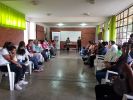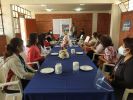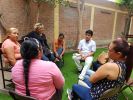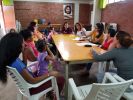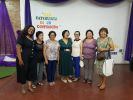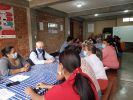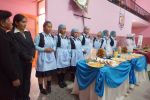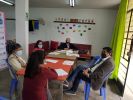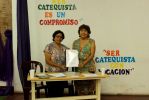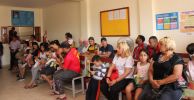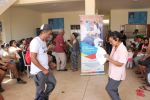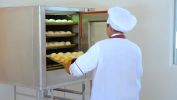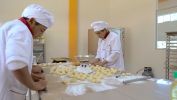It is vital that individuals are autonomous to safeguard their wellbeing and future development and to have a violence-free life with the full exercise of individual rights. This program enables the autonomy of women and children through entrepreneurship programs. Entrepreneurship generates the changes needed for a successful future, free of violence or discrimination.
Proyects
-
Scope: San Juan de Lurigancho (Lima)
Cooperating entity: Inter American Foundation – IAFThis project strengthened entrepreneurial skills in adolescents of two high schools in San Juan de Lurigancho. It also helped reduce poverty and prevent gender violence through personal, family, and community development. Their abilities, self-esteem, perseverance, creativity, and insight were strengthened through entrepreneurship. The project implemented clothing, bakery and carpentry workshops. Also, business initiatives were promoted through the course Education for Work. Subsequently, authorities, leaders, and businessmen participated in consultation to help achieve sustainable changes in the schools.
-
Scope: San Juan de Lurigancho (Lima), Jauja (Junín)
Cooperating entity: Inter American Foundation – IAFThis second phase of the project consolidated the progress made in San Juan de Lurigancho, Lima; and ensured that the institutional changes, methodology, and validated materials (modules, guides, plans, etc.) were transferred to the educational authority of the district for its sustainability and replica. This project was carried out in two rural schools in Jauja, and needed some adjustments to the new context, concerning the pedagogical approach, the type of business initiatives, and the link with local authorities. Consequently, a version of our proposal for Entrepreneurial Schools for the rural Andean context could be validated.
Outcomes of the Program
- The program generated the validation of the Entrepreneurial School model in the marginal urban and rural areas, and the qualification of a successful youth entrepreneurship strategy appropriate for the educational institutions (EBR), which can be replicated as a way to continually challenge poverty and violence.
- The participating schools were recognized by their respective local authorities as “pilot entrepreneurship schools”. In Lima, the UGEL 05 SJL / EA made this recognition through the R.D. N ° 06204-2013-UGEL 05, while in Jauja (Junín) it was done by UGEL Jauja with R.D. No. 001808-2016.
- More than 600 students of high school level in the marginal urban and rural areas strengthened their capacity for entrepreneurship. These students developed personal, family business, and life projects, which were carried forward with the support of the teachers.
- More than 90 teachers from the EPT (education for work) and homeroom teaching areas were trained in entrepreneurship management in schools, as well as other teachers from courses such as Communication, Mathematics, Art, and History. For this purpose, the teachers worked together on mainstreaming the contents of the proposal in their respective curricula.
- Our "Entrepreneur Schools" model was qualified as a good school practice by the Organization of American States (OAS). This strategy was disseminated and transferred to the members of the Inter-American Teacher Education Network - ITEN / OAS and an internship was held at the Ministry of Education of Santa Fe, Argentina.

